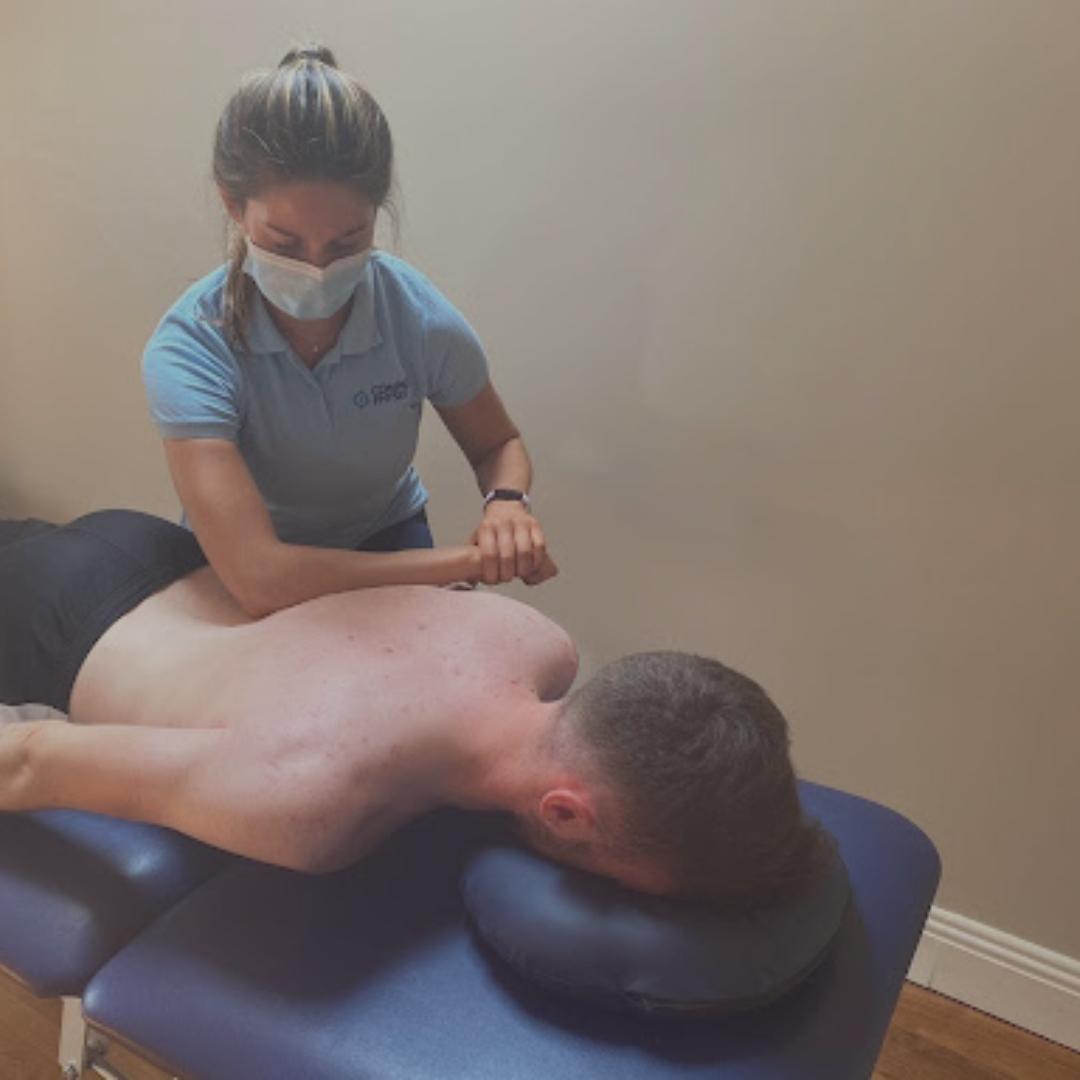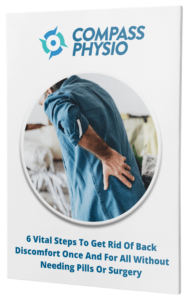Top 4 Benefits of Deep Tissue Massage!
What is Deep Tissue Massage
Here at Compass Physio Kilcock, Enfield, Castlecomer and Trim Physio we have appointments for Deep Tissue Massage but what is it..
Deep Tissue Massage is unlike Swedish massage as it is much firmer.
Deep Tissue Massage uses slow, strong and specific techniques to concentrate on the problematic area.
Practitioners may use their forearms, elbows, fingertips and knuckles, as well as their hands, to break down ‘knots’ in the muscle which can cause pain and negatively influence circulation.
Does It Hurt :
Most people will feel some discomfort during the treatment as the therapist will be working on painful areas. However, your therapist will communicate with you throughout so you can let them know which areas are painful and if the pressure is too much. That way they can alter and adjust the massage to be more comfortable. Everyone is different and has a different response to the treatment so it is important to be open and honest with your therapist about how it feels.
What to Expect :
Deep tissue massage techniques are used to break up scar tissue and physically break down muscle “knots” or adhesions (bands of painful, rigid tissue) that can disrupt circulation and cause pain, limited range of motion, and inflammation.
At the beginning of a deep tissue massage, lighter pressure is generally applied to warm up and prepare the muscles. Specific techniques are then applied. Common techniques include:
Stripping: Deep, gliding pressure along the length of the muscle fibers using the elbow, forearm, knuckles, and thumbs.
Friction: Pressure applied across the grain of a muscle to release adhesions and realign tissue fibers.
Massage therapists may use fingertips, knuckles, hands, elbows, and forearms during a deep tissue massage. You may be asked to breathe deeply as the massage therapist works on tense areas.
After Your Massage :
It is normal to feel stiffness or tenderness after a deep tissue massage but this shouldn’t last any long than a day or two. Stretching can help to alleviate this.
It’s also recommended to drink plenty of water to re-hydrate your muscles and flush out any toxins that were released during the massage.
There are numerous benefits to a deep tissue massage including:
- Reducing injury risk in both people who are involved in sports and indeed those who have more sedentary jobs that can involve a lot of sitting or driving.
- Enhance performance during activity. This can include the sporting element where with less muscle tightness people can move more easily. Often for non sporty people there can be a reduction in discomfort and pain leading to greater concentration levels and focus enhancing performance in work.
- Speed up the recovery and healing process after an injury. Massage can help to assist the body in clearing away negative cells from an injury site and assist in gaining return to function quicker.
- Help with diagnosing issues before they arise. A skilled therapist may identify areas of tension that if left untreated could lead to further issues. You may also be given some exercises to keep the muscles mobile.
Lower psychological stress and can promote the release of positive hormones like oxytocin and serotonin.
How Do They Work :
Researchers are trying to figure out exactly how probiotics work. But it is understood that when you lose “good” bacteria in your body, for example after you take antibiotics, probiotics can help replace them. As well as that, they can help balance your “good” and “bad” bacteria to keep your body working the way it should.
The following are only some of the Benefits of Deep Tissue Massage:
– Reduce or eliminate pain
– Reduce muscle tension
– Increase range of motion
– Improve lymphatic drainage
– Relieve tension headaches
– Manage low back pain
– Lower blood pressure
– Help those who suffer with chronic pain
4 Signs you need a Deep Tissue Massage :
You notice differences in your posture-
The muscles that hold your torso upright become slack and get sore from you leaning over when sitting or driving. They then allow other muscles to create tension, to try and keep you upright, creating an imbalance in the muscles. Eventually, you will begin to feel tension soreness in your torso that may even transpire into your neck and shoulders, as a result of the muscle imbalances going on. For all office workers reading this, it will be familiar for you and you know that hunching over your computer can lead to bad posture. The good news is a deep tissue massage session will help to resolve and aid your posture.
You have reached a plateau in your training-
If you feel heavy in the gym or on the pitch and feel as though you have lost your range of movement in your exercises, then please consider that you have plateaued and a deep tissue massage is the answer. It will loosen you up, increase your flexibility, and make it easier to work muscles you never knew you had.
You’ve completed a sporting challenge like a marathon or climb-
You have finished a long run and within two days your legs are throbbing and feeling heavy. This is known as DOMS – Delayed Onset Muscle Soreness. This needs a deep tissue massage to relieve all tension and to remove that heavy feeling. If you are training for an endurance event, like a marathon, and you get tight calves by the 10k mark your body might be telling you it’s time for a deep tissue massage.
You’ve noticed that you get headaches-
This is a clear sign that your neck and shoulder muscles are very tight and holding tension. To relieve all these muscles and those on the front of your neck will usually take away your headache. Please do not allow yourself to suffer and to use pain relief to get by. This is a clear sign that your body needs my specialist intervention with a deep tissue massage.

How Can Physiotherapy Help?
If you are finding it hard to complete regular exercises due to pain, fatigue or simply time schedules speak to us at Compass Physio.
Exercise is for everybody. At Compass physio we will complete a full physical assessment and will help identify any possible underlying causes that may limit your exercise regime.
Our chartered physiotherapists will help you to build strength and strategies which will help tackle any problem.
At Compass physio we will help you succeed and reach your goals.
To find out how Compass Physio can help, call 046 954 9456 (this number covers all clinics), click here to book online.
You can also email any questions to info@compassphysio.ie
Paddy Mulligan – MISCP Chartered Physiotherapist Compass Physio

